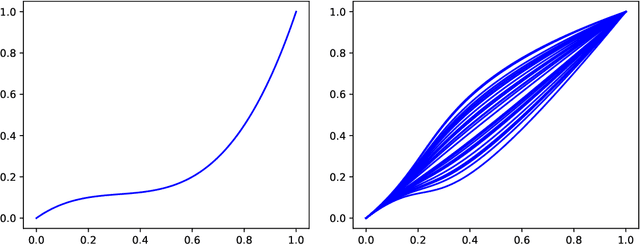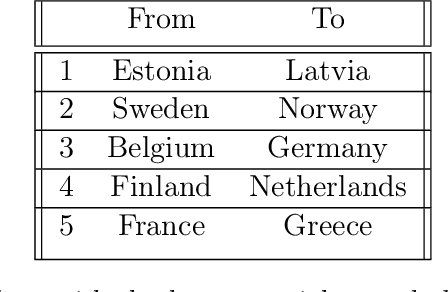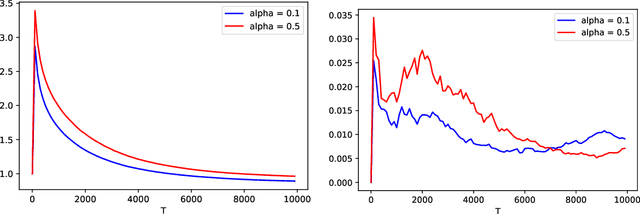Wasserstein multivariate auto-regressive models for modeling distributional time series and its application in graph learning
Paper and Code
Jul 12, 2022



We propose a new auto-regressive model for the statistical analysis of multivariate distributional time series. The data of interest consist of a collection of multiple series of probability measures supported over a bounded interval of the real line, and that are indexed by distinct time instants. The probability measures are modelled as random objects in the Wasserstein space. We establish the auto-regressive model in the tangent space at the Lebesgue measure by first centering all the raw measures so that their Fr\'echet means turn to be the Lebesgue measure. Using the theory of iterated random function systems, results on the existence, uniqueness and stationarity of the solution of such a model are provided. We also propose a consistent estimator for the model coefficient. In addition to the analysis of simulated data, the proposed model is illustrated with two real data sets made of observations from age distribution in different countries and bike sharing network in Paris. Finally, due to the positive and boundedness constraints that we impose on the model coefficients, the proposed estimator that is learned under these constraints, naturally has a sparse structure. The sparsity allows furthermore the application of the proposed model in learning a graph of temporal dependency from the multivariate distributional time series.
 Add to Chrome
Add to Chrome Add to Firefox
Add to Firefox Add to Edge
Add to Edge